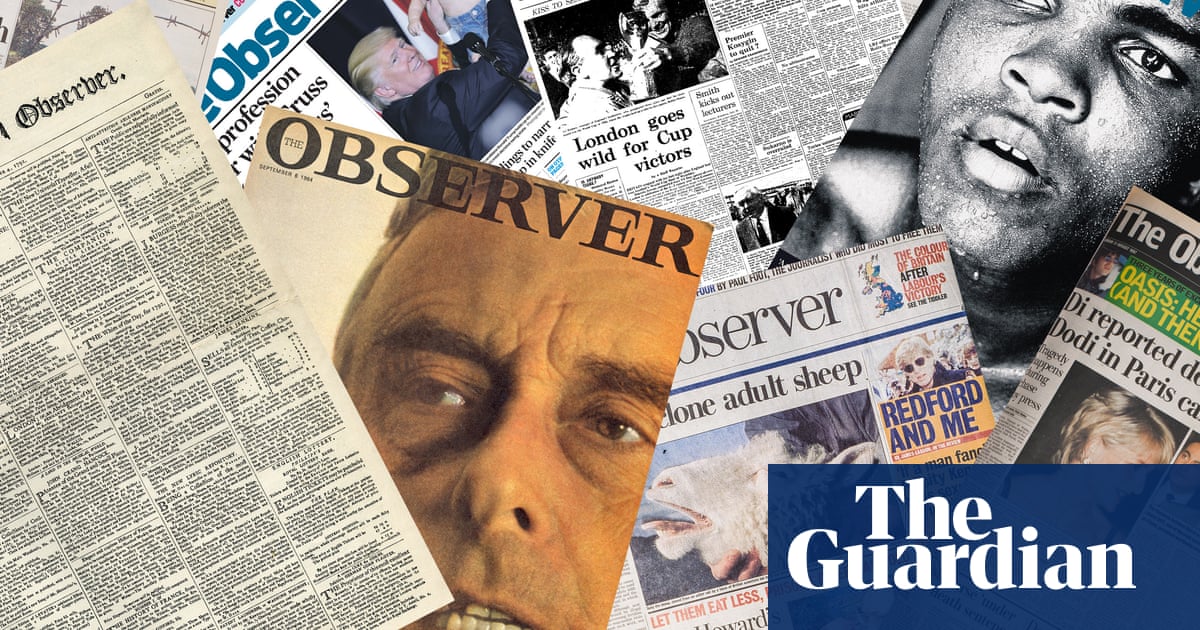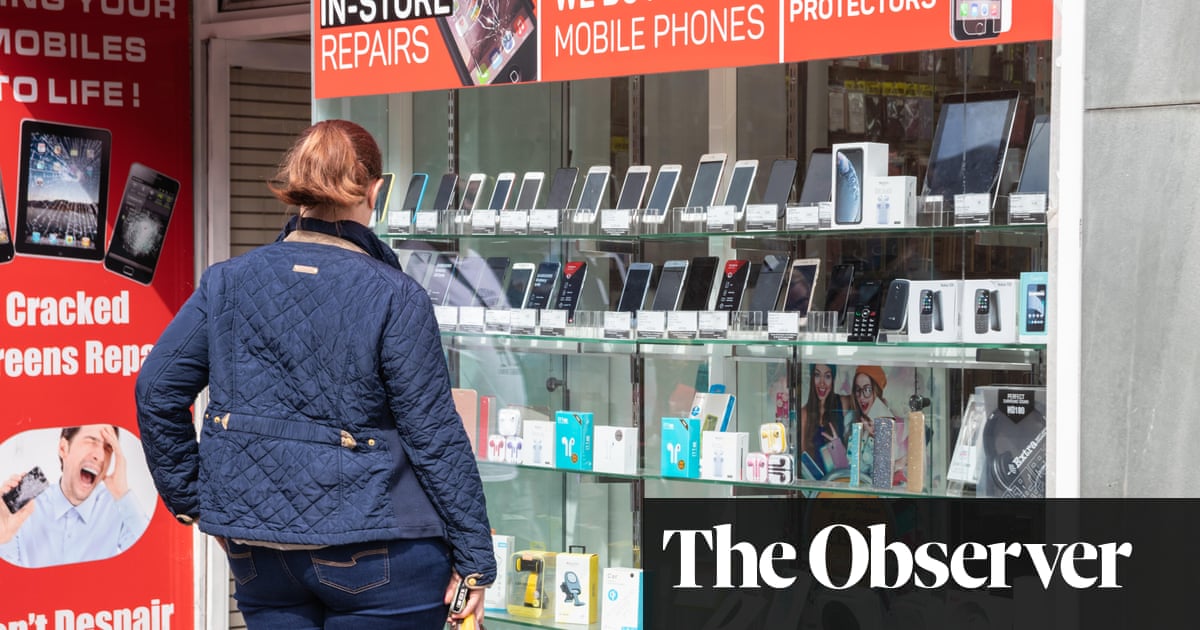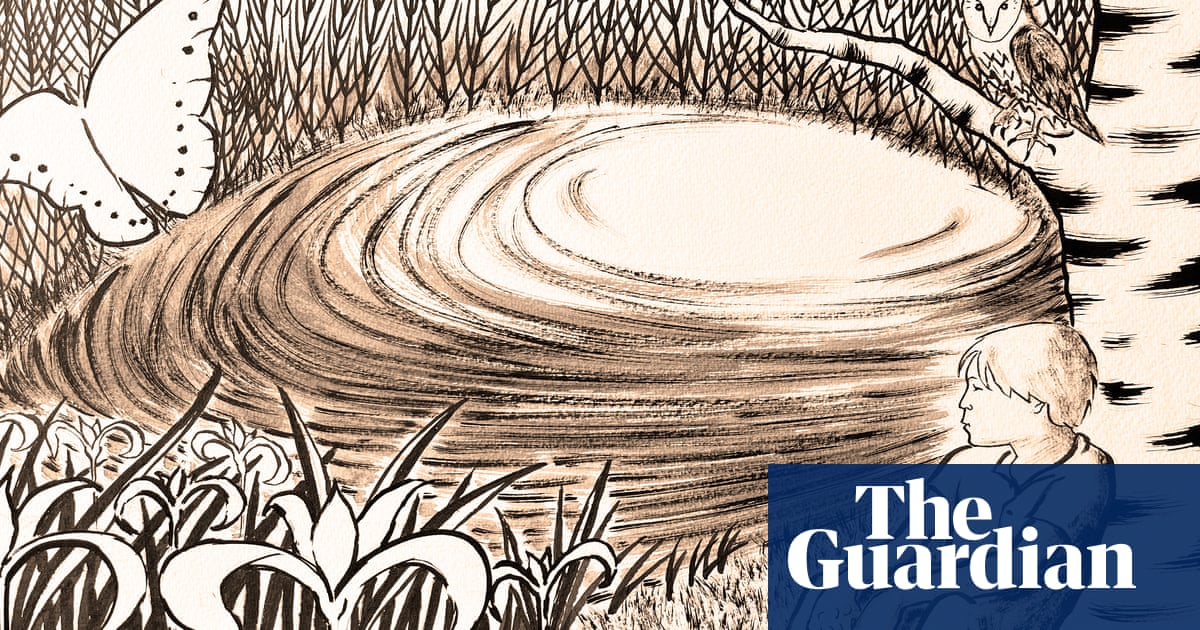Nintendo is likely to announce its next console this week, the follow-up to the 150m-selling Nintendo Switch, which came out in March 2017. There’s just one problem: we already know almost everything about it. At this point there’s very little that Nintendo could announce that would be a surprise to anyone who has been following the rumours closely.
The trickle of Nintendo Switch 2 leaks began last summer, and built to a flood this month. Last week at the CES tech trade show in Vegas, accessory maker Genki arrived with a full-on model of Nintendo’s next console, which it happily showed off behind closed doors to illustrate its forthcoming products. You can even look at a detailed render of the thing on Genki’s website. It is a slightly larger, more powerful version of the Switch console we all know and love, with controllers that attach magnetically rather than sliding on and off the sides of the screen. It can still be played docked on your TV or on the go.
This is a very un-Nintendo way to do things. Apart from the NES/SNES, every single Nintendo console has been a form-factor revolution. There was the N64, with its pioneering analogue stick and three-pronged controller; the squat, toylike GameCube; the Wii, with its motion control remotes; its follow-up, the Wii U, added a screen in the middle of its controller. This is the first time that Nintendo has ever made two successive consoles that look the same and work the same, with the possible exception of the dual-screened DS and its successor the 3DS, which added stereoscopic 3D to the console’s features. They even share a name, and a logo: the current most credible information indicates that it will be called the Nintendo Switch 2.
I won’t repeat more leaked details about the Switch 2; they are easy to search out, and we’ll know for sure what’s true and what isn’t within the next day or so. Nintendo has confirmed that the Switch 2 will share a back-catalogue with the Switch, so that every player can enjoy all the games they bought over the past eight years on the new console. We also know that it won’t launch before April, as it is due to come out in Nintendo’s next financial year (my money is on June). But this is an extraordinary situation – we know pretty much everything about a console from gaming’s most secretive company before it has been officially announced. How has it happened?

When the PlayStation 5 launched in 2020, the biggest story at the time was that people could not get hold of one. Some customers who had pre-ordered a PS5 instead received packages containing bags of rice, swapped out by a ne’er do well in the delivery chain. On eBay and other resale platforms, the consoles were going for two or three times their retail price. The supply-and-demand gap, caused partly by manufacturing challenges during the pandemic, dogged the console for at least the first two years of its life. Nintendo will have wanted to avoid a similar situation.
We know that Nintendo’s manufacturing partners have been making parts for this console for a long time – over a year. The company is aiming to have huge amounts of stock in reserve for when the thing launches. This is one reason why so much information has leaked in advance: many different companies have already been involved in Switch 2 manufacturing, and units/parts of units have been out there for some time.
Nintendo also hasn’t gone after the leakers in the way that you might expect, or shut anything down legally. Its sole response to this flood of unauthorised information, given to Japanese outlet Sankei last week, is “these images and videos are not official”. This suggests that Nintendo itself considered that this might be inevitable; that it has delayed the announcement of its next console as much as it can, to eke out the life of the phenomenally successful Switch, and that it reckons these leaks won’t do much to damage sales prospects.
The Switch 2’s announcement will contain few surprises. What is surprising is the rather un-Nintendo nature of this iterative console, and the piecemeal way we’re finding out about it. Watch out for more on the official announcement very soon.
What to play

A low-effort dad game for a quiet January, for anyone missing their time in the garden: It’s Literally Just Mowing is exactly what it says it is. You swipe, and your little ride-on mower soothingly passes across swathes of unruly grass in the increasingly large gardens of your neighbours until the whole street has been brought into order. You mow, you collect hats, you tap on different species of butterfly to admire them. My attention was drawn to this by my friend Patrick Klepek of parent-gamer newsletter Crossplay (we do a podcast together about navigating games with your kids), and I was surprised to find myself playing it for a full half hour straight. Am I getting old?
Available on: iOS/Android
Estimated playtime: 5 mins, an hour, whatever you want
What to read

-
Dreams on a Pillow, a game about the 1948 Nakba from Palestinian developer Rasheed Abueideh, has hit its funding goal. I spoke to Abueideh about the many obstacles he has faced in trying to tell a Palestinian story through a video game – hardships that nobody should have to face down.
-
Square Enix has announced a new policy that aims to protect its staff from harassment by toxic fans, and will not stop short of restricting the games and services of players who abuse its support staff or developers.
-
The latest Awesome Games Done Quick speedrunning event raised over $2.5m for charity this past weekend. Personal highlight: the Crazy Taxi player accompanied by a live pop-punk band.
after newsletter promotion
What to click
-
Resident Evil 4 at 20: the horror game that revitalised a genre
-
Grunn – part gardening sim, part survival horror thriller | ★★★★☆
-
Boxed video game sales collapse in UK as digital revenues flatten
Question Block

This week’s question is from reader Tom:
“The Guardian has a regular On my radar column for interviewees to suggest what they’ve been enjoying recently, and I’ve always been surprised by the lack of games on there. Why do you think this is? Do people not think games are highbrow enough to mention? Profile/age of the people profiled? Or are we trained to think of games as not ‘culture’ in that way?”
As someone who writes about games for the culture section of a newspaper, I come up against version of this question all the time: why aren’t games talked about in the same places, and in the same ways, that other art and entertainment is talked about? Games are culture, incontrovertibly, but they are also technology, and that’s how a lot of people still think of them, as techy toys. I am very used to a certain level of condescension when it comes to games, and I suspect most people my age who grew up when games were scoffed at or considered potentially dangerous fear that reaction when they talk about them.
So perhaps, when asked to pick out their cultural highlights, people do keep their gaming tastes to themselves, and foreground other things. But I do think this is changing with time. We are long past the time when games were considered nebulously shameful, and I notice that nowadays, even when I am speaking to someone who doesn’t understand games very well, eg when I’m guesting on a radio show, they nonetheless ask with respect and curiosity rather than condescension and dismissiveness. As more of us age into power this will only continue to change.
If you’ve got a question for Question Block – or anything else to say about the newsletter – hit reply or email us on [email protected].

.png) 3 months ago
31
3 months ago
31













































